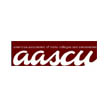 |
|
|
 |
 |
 |
 |
| CREATE GLOBAL AWARENESS : |
| About U.S. Students Studying Abroad |
 |
AASCU
American Association of State Colleges and Universities
Profile >
|
“While the events of September 11 have underscored the need for strong homeland security and national defense, they have also powerfully reminded the nation of its inextricable relationships with the world community, as well as the vital importance of better awareness and understanding of its global neighbors. AASCU strongly believes that higher education institutions, as primary agents of intellectual and cultural exchange, must maintain and enhance their international outlook in the world that is emerging.”
Full Statement >
“Among the myriad of changes facing higher education, none is more compelling than the need to provide campus environments that prepare students to live and function productively in a business and social milieu of great cultural, economic and linguistic diversity. If today's educated people are to be able to move comfortably in many different cultures, they must have the advantage of a global education. They should be exposed to other languages so that they can respect other tongues and abandon the arrogance that claims everyone knows or should know English. They must spend time with people of other races.”
“To be an educated person in the new millennium one must have the new skills that come from exposure to other cultures and the understanding produced from the study of different societies and nations. To be employed in those parts of the economy that cross national borders and the barriers of different languages one must be educated in a global environment that provides comfort and understanding of the cultures. Even to function at home, as most of our graduates will, in an increasingly diverse United States environment, a new sensitivity and understanding is required.”
Full Statement >
|
|
 |
Albright, Madeleine K.
Former Secretary of State
Department of State
Profile >
|
“The benefits to the United States are clear as well. These ventures improve our understanding of other cultures and make friends for us worldwide. In consequence I'm absolutely committed to preserving the integrity of these programs. They are by law, and by right, nonpolitical. They are not pork, they are pure gold, and we must manage them as the precious assets to American interests and values that they are.”
Full Statement >
|
|
 |
Alliance
Alliance for International Education and Cultural Exchange
Profile >
|
“It is through international educational and cultural exchanges that we will promote international understanding and introduce foreign citizens, scholars, and professionals to the United States. Post-September 11, the fundamental U.S. interest in providing opportunities for people from other countries to experience and understand the United States could not be clearer. Yet funding for exchange programs has declined by 40 percent in real-dollar terms over the past decade. This situation cannot be allowed to continue.”
(Joint statement with NAFSA)
Full Statement >
“The end of the cold war did not mean an end to international, civil, and ethnic conflict.
The defense of U.S. interests and the effective management of global unrest in the next
century will require more, not less, ability on the part of Americans to understand the
world in terms other than their own.”
“Globalization is obliterating the distinction between foreign and domestic concerns.
Most domestic problems in today.s world are also international. The global economic
and technology revolutions are redefining the nation.s economic security and reshaping
business, life, and work. The opening of global markets, the explosion of trade, the
globalizing effects of Internet technology, and the need for U.S. business to compete in
countries around the world require much more global content in all U.S. education, as
well as more Americans with specific foreign language and country expertise.”
“The world is coming to us, like it or not. Immigrants are changing the face of American
society. Foreign-born experts pace America.s scientific leadership. The American
workforce is now multicultural, and customers for American products are found
everywhere the Internet goes. These realities help fuel U.S. development, but they also
create new needs, both for managers who can think globally and for tolerance and cross-
cultural sensitivity in our neighborhoods and workplaces.”
“What is needed is a policy that promotes international education in the broadest sense,
including supporting the learning of foreign languages and in-depth knowledge of other
cultures by Americans, promoting study abroad by U.S. students, encouraging students
from other countries to study in the United States, facilitating the exchange of scholars
and of citizens at all levels of society, and supporting the educational infrastructure
through which we produce international competence and research.”
“If American students are to be able to function effectively in the world into which
they will graduate, it must become the routine.not the exception.for them to study
abroad in high quality programs. For that to happen, the United States requires a
policy to promote global learning.a policy that recognizes that providing Americans
with opportunities to acquire the skills, attitudes, and perceptions that allow them to
be globally and cross-culturally competent is central to U.S. security and economic
interests in the twenty-first century.”
“Exchange programs uniquely engage our citizenry in the pursuit of our country.s global interests, and offer opportunities for substantive interaction in the broadest possible range of fields. These exchanges also offer unparalleled opportunities for intercultural learning. Many of today.s world leaders first experienced America and its values through exchange programs. But these valuable programs are hemmed in by diminished policy priority and by bureaucratically imposed regulations that make them more
difficult than necessary for nongovernmental and community organizations to manage.”
“To be an educated citizen today is to be able to see the world through others. eyes and to
understand the international dimensions of the problems we confront as a nation..skills
that are enhanced by international experience. The programs we put in place today to
make international experience integral to higher education will determine if our society
will have a globally literate citizenry prepared to respond to the demands of the twenty-
first century.”
(Joint statement with NAFSA)
Full Statement >
|
|
 |
Ayala, Jesus
BA in Political Science and American Studies, minor in Ethnic Studies
University of California, Berkley
Profile >
|
“On the first day of my international relations course my professor jokingly said that Americans are completely clueless. Although I immediately objected, I now appreciate my professor’s comment. In many ways my views about the world were indeed limited.
Fortunately, my professors in Spain pushed me to look beyond my reservations and to critically challenge my own beliefs… My interactions with local residents complimented what I learned in the classroom. A year abroad taught me that people have views that may differ from mine, and that is perfectly fine.”
Full Statement >
|
|
 |
Ayala, Ofelia
Parent of study abroad student
Profile >
|
“While he was abroad he improved his knowledge about global politics and he now shows a genuine interest in what is happening beyond our borders. Spain merely opened the door to European politics and culture. Having studied in Spain in wake of the European Union has improved his understanding of comparative politics and international business.”
Full Statement >
|
|
 |
Bush, George W.
Former U.S. President
United States
Profile >
|
"I call on schools, teachers, students, parents, and community leaders to promote understanding of our nations and cultures by encouraging our young people to participate in activities that increase their knowledge of and appreciation for global issues, languages, history, geography, literature, and the arts of other countries."
"By studying foreign cultures and languages and living abroad, we gain a better understanding of the many similarities that we share and learn to respect our differences."
"We must also reaffirm our commitment to promote educational opportunities that enable American students to study abroad, and to encourage international students to take part in our educational system."
Full Statement >
|
|
 |
Clinton, William J.
Former U.S. President
United States
Profile >
|
"Today, the defense of U.S. interests, the effective management of global issues, and even an understanding of our Nation's diversity require ever-greater contact with, and understanding of, people and cultures beyond our borders."
"To continue to compete successfully in the global economy and to maintain our role as a world leader, the United States needs to ensure that its citizens develop a broad understanding of the world, proficiency in other languages, and knowledge of other cultures. America's leadership also depends on building ties with those who will guide the political, cultural, and economic development of their countries in the future. A coherent and coordinated international education strategy will help us meet the twin challenges of preparing our citizens for a global environment while continuing to attract and educate future leaders from abroad."
Full Statement >
|
|
 |
FitzSimons, Katherine C.
Graduate Student, B.A. Spanish, Journalism
University of Southern California
Profile >
|
"After September 11, I was better able to sympathize with the victims of ETA’s attacks, and I came to understand that the U.S. has a lot more in common with Spain than I once thought. My experience abroad in the Basque country helped me to realize that security and terrorism are international issues that affect the lives of not just Basques, Spaniards and Americans, but those in all other countries."
"It was inspiring to witness the workings of the E.U.; it encouraged me to take greater interest in Ireland, Spain and other member nations, and it open my mind to the future possibilities of working for and living in the E.U. Had I never studied abroad, I might have never understood the importance of the relationship between the U.S. and the E.U., and I might have never discovered my pride in being an Irish-American."
"I felt as though I was living history. The interactive learning experience of visiting historical and cultural places about which you have studied really helped immerse me in Spanish culture. Just by exploring these historic sites, I felt better educated, and more cultured. I understood and was in-tune with Spanish culture-a culture into which I was trying to assimilate during my months abroad."
"Because of my study abroad experience in Spain, I can now communicate, work, and make friends with a much broader population of people, and I can make others feel more comfortable by interacting with them in their native language-Spanish."
"Travel makes up a large part of study abroad, as it opens one up to new places, people and ideas. Travel is the adventure part of study abroad, where what you learn in the classroom comes to life and is put into practice. Travel also requires adaptation and tolerance; one must not only adapt to foreign environments, lifestyles, and customs, but also tolerate those encountered differences and work toward seeing them in a more positive light."
Full Statement >
|
|
 |
Goodman, Allan E.
President and CEO
Institute of International Education
Profile >
|
"The American public also needs better and less-sensationalized information on these matters. They need to be reliably informed about the numbers of international students in the United States, the rigor of the process by which they are admitted to our colleges and universities, and the benefit that their presence here brings to our local communities and to the many American students who will not themselves have a chance to study abroad."
Full Statement >
"When more Americans have the chance to study in other countries, they will have an opportunity to share American values and aspirations while gaining an appreciation of different cultures and learning about the many different ways people see us and the world. Understanding of and knowledge about the culture and society of others is critical to the success of American diplomacy and business, and the lasting ties that Americans make during their sojourns abroad are important to our country in times of conflict as well as in times of peace. "
(Joint statement with Henry Kaufman)
Full Statement >
“To change this outlook in the successor generation, we need to change what we define as an educated person to include study outside America not as a luxury or an option but as a core requirement. The scholarship programs like the Fulbright, Rhodes, Marshall, and now Gilman, that promote the exchange of people and ideas are thus the leading edge of a paradigm shift that will have an even greater impact in this century than they did in the last. Perhaps more than anything else they hold the key to whether or not the generation of Americans we are now educating will prosper in an age when the most critical success factor for countries as well as companies are people whose minds are open to the world.”
Full Statement >
|
|
 |
Kaufman, Henry
Former Chairman of the Board of Trustees
Institute of International Education
Profile >
|
"When more Americans have the chance to study in other countries, they will have an opportunity to share American values and aspirations while gaining an appreciation of different cultures and learning about the many different ways people see us and the world. Understanding of and knowledge about the culture and society of others is critical to the success of American diplomacy and business, and the lasting ties that Americans make during their sojourns abroad are important to our country in times of conflict as well as in times of peace. "
(Joint statement with Allan E. Goodman )
Full Statement >
|
|
 |
Kerns, Brian (R-IN)
Former Congressman
House International Relations Committee
Profile >
|
"After having the opportunity to spend the last week traveling abroad with my colleagues through Russia, Turkey and Italy, I was able to witness public diplomacy at its finest. And I found that there is no better way to promote our country, our culture, and our government than through the people-to-people exchange. And there is no better time to do so than now."
Full Statement >
|
|
 |
Mossbarger, Miriam
Undergraduate Student, International Relations, minor Graphic Arts
University of Southern California
Profile >
|
Yet, as important as academics were in view of my overall experience, I would say that the exposure I had to people of different cultures and ages and the increasing growth and maturity – both mental and intellectual – that resulted was an even more vital part of my overseas education. Not only did I intermingle with and befriend English, Welsh and Scottish students, but because the University I attended was well-known throughout Europe and in other parts of the world, I had a chance to meet people from Denmark, Pakistan, Germany, France, Canada, Spain, and of course the United States. Each conversation with these people opened my mind a little more to a world larger and more complete than what I had known before my time abroad, and each conversation challenged my views – forced me to assess and re-evaluate the views I held.
Full Statement >
|
|
 |
NAFSA
Association of International Educators
Profile >
|
“It is through international educational and cultural exchanges that we will promote international understanding and introduce foreign citizens, scholars, and professionals to the United States. Post-September 11, the fundamental U.S. interest in providing opportunities for people from other countries to experience and understand the United States could not be clearer. Yet funding for exchange programs has declined by 40 percent in real-dollar terms over the past decade. This situation cannot be allowed to continue.”
(Joint statement with Alliance)
Full Statement >
“The end of the cold war did not mean an end to international, civil, and ethnic conflict.
The defense of U.S. interests and the effective management of global unrest in the next
century will require more, not less, ability on the part of Americans to understand the
world in terms other than their own.”
“Globalization is obliterating the distinction between foreign and domestic concerns.
Most domestic problems in today.s world are also international. The global economic
and technology revolutions are redefining the nation.s economic security and reshaping
business, life, and work. The opening of global markets, the explosion of trade, the
globalizing effects of Internet technology, and the need for U.S. business to compete in
countries around the world require much more global content in all U.S. education, as
well as more Americans with specific foreign language and country expertise.”
“The world is coming to us, like it or not. Immigrants are changing the face of American
society. Foreign-born experts pace America.s scientific leadership. The American
workforce is now multicultural, and customers for American products are found
everywhere the Internet goes. These realities help fuel U.S. development, but they also
create new needs, both for managers who can think globally and for tolerance and cross-
cultural sensitivity in our neighborhoods and workplaces.”
“What is needed is a policy that promotes international education in the broadest sense,
including supporting the learning of foreign languages and in-depth knowledge of other
cultures by Americans, promoting study abroad by U.S. students, encouraging students
from other countries to study in the United States, facilitating the exchange of scholars
and of citizens at all levels of society, and supporting the educational infrastructure
through which we produce international competence and research.”
“If American students are to be able to function effectively in the world into which
they will graduate, it must become the routine.not the exception.for them to study
abroad in high quality programs. For that to happen, the United States requires a
policy to promote global learning.a policy that recognizes that providing Americans
with opportunities to acquire the skills, attitudes, and perceptions that allow them to
be globally and cross-culturally competent is central to U.S. security and economic
interests in the twenty-first century.”
“Exchange programs uniquely engage our citizenry in the pursuit of our country.s global interests, and offer opportunities for substantive interaction in the broadest possible range of fields. These exchanges also offer unparalleled opportunities for intercultural learning. Many of today.s world leaders first experienced America and its values through exchange programs. But these valuable programs are hemmed in by diminished policy priority and by bureaucratically imposed regulations that make them more
difficult than necessary for nongovernmental and community organizations to manage.”
“To be an educated citizen today is to be able to see the world through others. eyes and to
understand the international dimensions of the problems we confront as a nation..skills
that are enhanced by international experience. The programs we put in place today to
make international experience integral to higher education will determine if our society
will have a globally literate citizenry prepared to respond to the demands of the twenty-
first century.”
(Joint statement with Alliance)
Full Statement >
|
|
 |
Powell, Colin L.
Former U.S. Secretary of State
Department of State
Profile >
|
"International education prepares our citizens to live, work, and compete in the global economy, and promotes tolerance and the reduction of conflict."
"…it is important for American students to learn other languages, experience foreign cultures, and develop a broad understanding of global issues."
Full Statement >
|
Play Video >
|
 |
Riley, Richard W.
Former U.S. Secretary of Education
Department of Education
Profile >
|
“The United States has been very fortunate to have a large number of foreign exchange students on our college campuses. Almost 500,000 foreign students are currently studying at American colleges and universities.
About half of these students are in graduate education where they make a valuable contribution to this nation's research effort. These students bring at least $9 billion per year to our economy, and they enrich our campuses and communities in non-economic ways, too. They develop lifelong friendships, which benefit both nations in countless ways.
It is clear to me from my conversations with other ministers that other nations see new opportunity in such exchanges and are working very hard to make their exchanges opportunities more attractive, more accessible and less costly.”
“I strongly believe that the growth of democracy, economic prosperity and economic stability throughout the world is linked to the advance of education. This is one of the strongest reasons why the United States should have an active and strong international education agenda. Education and democracy go hand in hand.
As a great democracy, the United States has a vested interest in promoting democracy and economic stability throughout the world.
When we help democracy and economic prosperity in the rest of the world, we are also helping ourselves beyond the fact that it is right thing to do.
All throughout the world there are thousands of leaders in other nations-political, economic and social leaders-who got a taste of democracy in all of its complexity when they came to study here in the United States. They saw America, in all our goodness and in some of our excesses, too.”
Full Statement >
|
|
|
 |
|
|
|
 |
|
|
 |